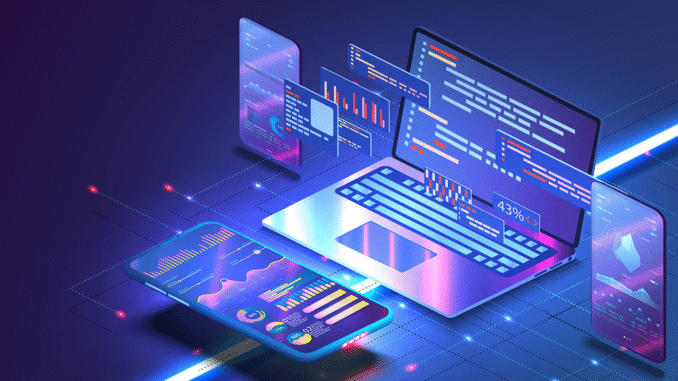
Top 10 Emerging Technologies That Will Shape 2025
As we venture into 2025, technological advancements are poised to revolutionize industries, society, and daily life. From AI and blockchain to next-generation renewable energy solutions, the technologies of tomorrow are already shaping the way we work, communicate, and interact with the world. Understanding these innovations and their potential impact is crucial for businesses, professionals, and individuals who want to stay ahead in a rapidly evolving world.
Here are the top 10 emerging technologies that are set to shape 2025:
1. Artificial Intelligence (AI) and Machine Learning
Artificial Intelligence (AI) and Machine Learning (ML) continue to be at the forefront of technological transformation. By 2025, these technologies will be deeply embedded in almost every sector, from healthcare and finance to marketing and manufacturing.
AI is revolutionizing industries by enabling machines to perform tasks that typically require human intelligence, such as problem-solving, pattern recognition, and decision-making. Machine learning, a subset of AI, allows systems to learn from data and improve over time without explicit programming.
Impact in 2025:
- Healthcare: AI will aid in diagnosing diseases, personalizing treatment plans, and managing patient data more efficiently.
- Automation: Many manual tasks in industries like customer service and logistics will be automated, leading to increased productivity and reduced costs.
- Personalized Experiences: AI will drive highly personalized experiences in e-commerce, entertainment, and social media platforms.
2. 5G and Beyond: Revolutionizing Connectivity
The rollout of 5G networks is set to transform the way we communicate and interact with the internet. With data speeds 10 to 100 times faster than 4G, 5G will enable real-time communication, smoother streaming, and enhanced online experiences. But the impact of 5G goes beyond just faster internet speeds.
By 2025, 5G will facilitate the widespread adoption of other emerging technologies, including AI, IoT, and autonomous vehicles.
Impact in 2025:
- Autonomous Vehicles: 5G will enable autonomous cars and drones to communicate with each other and their environment in real-time, making transportation safer and more efficient.
- Smart Cities: Real-time data exchange will lead to more efficient urban management, such as smart traffic systems and waste management solutions.
- Enhanced Gaming and VR: Gamers and virtual reality enthusiasts will experience seamless, lag-free interactions with ultra-high-definition content.
3. Quantum Computing
Quantum computing is no longer a concept confined to science fiction. By 2025, this powerful technology will be ready to tackle complex problems that classical computers cannot handle efficiently. Quantum computers use qubits (quantum bits), which allow them to process exponentially more data than traditional bits.
While quantum computing is still in its early stages, its potential is immense. In the coming years, it will disrupt industries like cryptography, pharmaceuticals, and artificial intelligence.
Impact in 2025:
- Cryptography: Quantum computers will be able to break current encryption methods, prompting the development of new quantum-resistant security measures.
- Drug Discovery: Quantum computing will accelerate the discovery of new drugs by simulating complex molecular structures much faster than classical computers.
- AI and Optimization: Quantum algorithms will solve problems related to machine learning and optimization, enabling AI systems to become more advanced and efficient.
4. Blockchain and Decentralized Finance (DeFi)
Blockchain technology, which underpins cryptocurrencies like Bitcoin and Ethereum, has already shown its potential to disrupt industries such as finance, supply chain management, and healthcare. By 2025, blockchain will be integrated into more aspects of daily life, moving beyond just digital currencies.
The rise of Decentralized Finance (DeFi) platforms will transform the financial sector by providing alternatives to traditional banking systems, such as lending, borrowing, and trading, without the need for intermediaries.
Impact in 2025:
- Decentralized Banking: DeFi platforms will allow individuals to access financial services globally, without needing banks or financial institutions as intermediaries.
- Supply Chain Transparency: Blockchain will enable greater transparency and traceability in supply chains, ensuring products are sourced ethically and reducing fraud.
- Smart Contracts: Blockchain-based smart contracts will automatically execute agreements between parties, reducing the need for legal intervention and increasing efficiency.
5. Augmented Reality (AR) and Virtual Reality (VR)
Augmented Reality (AR) and Virtual Reality (VR) technologies are set to transform the way we work, learn, and entertain ourselves. By 2025, these immersive technologies will go mainstream, with applications in various industries including gaming, healthcare, education, and retail.
AR overlays digital information onto the real world, while VR immerses users in a completely virtual environment. These technologies will redefine user experiences by creating more interactive, engaging, and immersive environments.
Impact in 2025:
- Education and Training: AR and VR will revolutionize learning by providing immersive training simulations, making complex concepts easier to understand.
- Retail: Virtual try-ons, product visualizations, and AR-enhanced shopping experiences will make online shopping more interactive and personalized.
- Healthcare: AR and VR will be used in surgery for enhanced precision, as well as in therapeutic applications like exposure therapy for mental health issues.
6. Biotechnology and Gene Editing
Advancements in biotechnology, particularly in gene editing technologies like CRISPR, are transforming the healthcare and agriculture sectors. By 2025, these technologies will be more widely adopted, enabling personalized medicine, advanced treatments, and even the possibility of genetic disease prevention.
Gene editing allows scientists to modify the DNA of living organisms, offering the potential to cure genetic disorders and even create genetically modified crops with higher nutritional value.
Impact in 2025:
- Personalized Medicine: Genetic therapies will be tailored to individual patients, increasing treatment efficacy and reducing side effects.
- Disease Prevention: Gene editing could eliminate or modify genetic mutations, preventing diseases like cystic fibrosis or sickle cell anemia.
- Agriculture: Genetically modified crops could be designed to withstand harsh environmental conditions, improving food security globally.
7. Autonomous Vehicles
Self-driving cars, trucks, and drones are expected to become mainstream by 2025. Autonomous vehicles (AVs) will revolutionize transportation, reducing traffic accidents, increasing efficiency, and lowering emissions.
Through the use of AI, sensors, and machine learning algorithms, autonomous vehicles will be able to navigate and make real-time decisions without human intervention.
Impact in 2025:
- Safety: AVs will reduce accidents caused by human error, leading to fewer fatalities and injuries on the road.
- Transportation Efficiency: With AVs, traffic congestion will be minimized, and delivery times will be more predictable.
- Sustainability: Autonomous vehicles, particularly electric ones, will contribute to reducing carbon emissions and fighting climate change.
8. Robotics and Automation
Robots and automation technologies have been steadily advancing and will play an even more significant role by 2025. From manufacturing and logistics to healthcare and service industries, robots will take over repetitive tasks, allowing humans to focus on more creative and complex endeavors.
These robots will be equipped with AI and machine learning capabilities, enabling them to learn and adapt to various tasks.
Impact in 2025:
- Manufacturing: Automation will increase efficiency and reduce production costs, making goods more affordable and accessible.
- Healthcare: Robots will assist with surgeries, patient care, and drug distribution, improving healthcare outcomes and reducing human error.
- Agriculture: Autonomous farming equipment will improve crop yields and reduce labor costs in the agricultural sector.
9. Renewable Energy and Energy Storage
The push for sustainable energy sources will only accelerate in the coming years. By 2025, advancements in solar, wind, and hydropower will be complemented by breakthroughs in energy storage, enabling more efficient and widespread use of renewable energy.
With innovations in energy storage technologies, such as solid-state batteries and supercapacitors, it will become easier to store and distribute clean energy, even when the sun isn’t shining or the wind isn’t blowing.
Impact in 2025:
- Grid Modernization: Smart grids will enable more efficient energy distribution, allowing for better integration of renewable energy sources.
- Electric Vehicles (EVs): Enhanced battery technology will make EVs more affordable and efficient, leading to widespread adoption.
- Sustainability: The energy sector will shift away from fossil fuels, contributing significantly to the fight against climate change.
10. Cybersecurity and Privacy Innovations
As digital transformation accelerates, so does the need for robust cybersecurity. By 2025, technologies like artificial intelligence, blockchain, and quantum encryption will play a pivotal role in protecting personal data, corporate assets, and national security.
Cybersecurity measures will evolve to address increasingly sophisticated threats, ensuring that both individuals and businesses are protected from cyberattacks.
Impact in 2025:
- AI-Powered Security: AI will be used to detect and respond to cyber threats in real-time, making systems more secure.
- Blockchain for Privacy: Blockchain technology will provide more secure and transparent ways of storing personal data and digital identities.
- Quantum Cryptography: Quantum encryption will provide ultra-secure communication channels that are nearly impossible to breach.
Conclusion
The technologies shaping 2025 are nothing short of transformative. From AI and quantum computing to renewable energy and autonomous vehicles, the innovations of tomorrow will change how we live, work, and interact with the world. Understanding these emerging technologies and their potential impact is essential for staying competitive and
thriving in an increasingly digital and interconnected world. Keep an eye on these developments as we head into a new era of innovation and growth.

